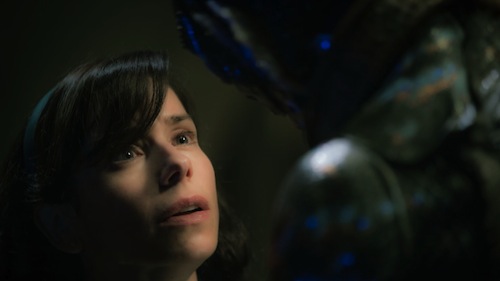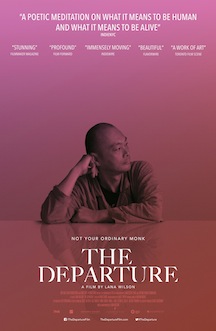Directed by François Ozon
Country: France / Belgium
Whenever I take a look at the filmography of prodigious French director François Ozon, I feel very comfortable stating that he is one of the most versatile storytellers working today. Regardless which genre he picks to dive into, his filmmaking style and artistic vision persist interesting, even when the scripts don’t facilitate his moves. Unforgettable films like “Under the Sand”, “Swimming Pool”, and “8 Women” became true classics, while “In The House”, “Young & Beautiful”, and “Frantz” earned a generally good reputation among critics and cinephiles alike. However, quality and consistency are variable factors in a cinematic career and Ozon lost his footing in his new film “Double Lover”, a cynical, erotic, psychological thriller starring Marine Vacth and Jérémie Renier. Both actors had worked with the director before; the former in “Young & Beautiful” and the latter twice, in “Potiche” and “Criminal Lovers”, released nearly twenty years ago.
Even piling up gripping tension throughout, the story didn’t captivate me so much due to the fact that Ozon simply forgot that, in most of the cases, less is more. Adopting several strained and calculative tactics within his genre-bending approach, he attempted to fuse the suspense of Brian De Palma, the sensualistic pleasures of Jean-Claude Brisseau, and that sort of “Alien” fixation of a woman with something creepy inside her guts.
At the center of the story is Chloé (Vacth), a 25-year-old single woman and former model who is referred to a psychoanalyst after her gynecologist has concluded that the piercing bellyaches that keep tormenting her should be mainly psychological. At the age seven, her mother confessed she was an accident, and she was entrusted to her grandparents. It was no surprise that the lonely and fragile Chloé undertakes to seduce her therapist Paul Meyer (Renier), promptly revealing her sexual dreams with him after only one session.
After being considered apt for a normal life again - celebrated with a part-time job as a museum watchwoman - she moves in with Paul. However, she becomes suspicious and slightly paranoid about his past, after finding an old passport of his with a different surname. Whether by accident or terrible fate, she discovers that Paul has a twin brother named Louis, who is also a psychoanalyst. Yet, his personality and working methods are completely opposite to the ones followed by his estranged brother. After scheduling an appointment with this enigmatic man, Chloé is given a thorough diagnosis of her condition and becomes trapped in a dangerous web of personal fascination and sexual desire.
You may expect the unexpected in this adaptation of the 1987 novel Lives of the Twins by Joyce Carol Oates. Still, the twists are so uneven and deviant that made me experienced them more as nonsenses than effectively stimulating points. By dabbling in hazy mirror games and cheap, artificial glamour, Ozon squanders the chance of presenting something consistent, both thematic and genre-wise. Notwithstanding, and considering “Double Lover” as a punctual misstep, I keep my expectations high for his next move.




























































